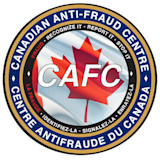
Privacy and security
Tips for safeguarding yourself during tax season
Learn how to protect yourself from Canada Revenue Agency scams.
Read article
Canadian Anti-Fraud Centre
www.antifraudcentre-centreantifraude.ca

The Canadian Anti-Fraud Centre is seeing an increase in reporting where fraudsters are using deepfake technology. The deepfake videos are impersonating politicians, celebrities, and news anchors.
Deepfake videos utilize sophisticated artificial intelligence algorithms to manipulate audio and video to make it appear as though the trusted person is promoting fraudulent investment platforms, merchandise or applications. These deepfake videos can be convincing, making it difficult for viewers to identify the video as authentic or not. They often circulate on social media platforms and, in some cases, are being used to commit fraud and spread false information.
Anyone who suspects they have been the victim of cybercrime or fraud should report it to their local police and to the Canadian Anti-Fraud Centre’s online reporting system or by phone at 1-888-495-8501. If not a victim, you should still report the incident to the CAFC.

Learn how to protect yourself from Canada Revenue Agency scams.
Read article
Discover essential tips to protect your data while enjoying the flexibility of working remotely.
Read article
Connect, control, and protect your home with these smart home tips.
Read article